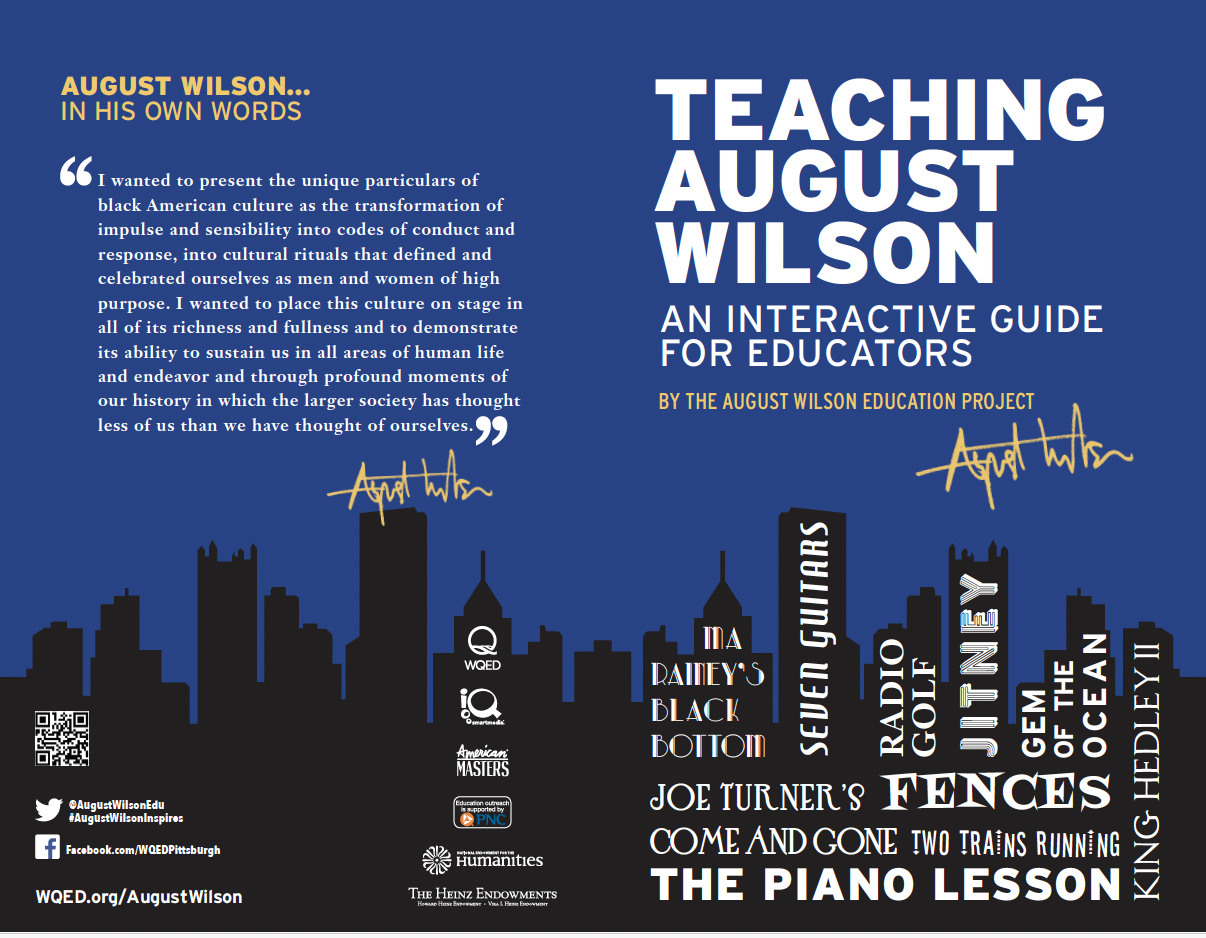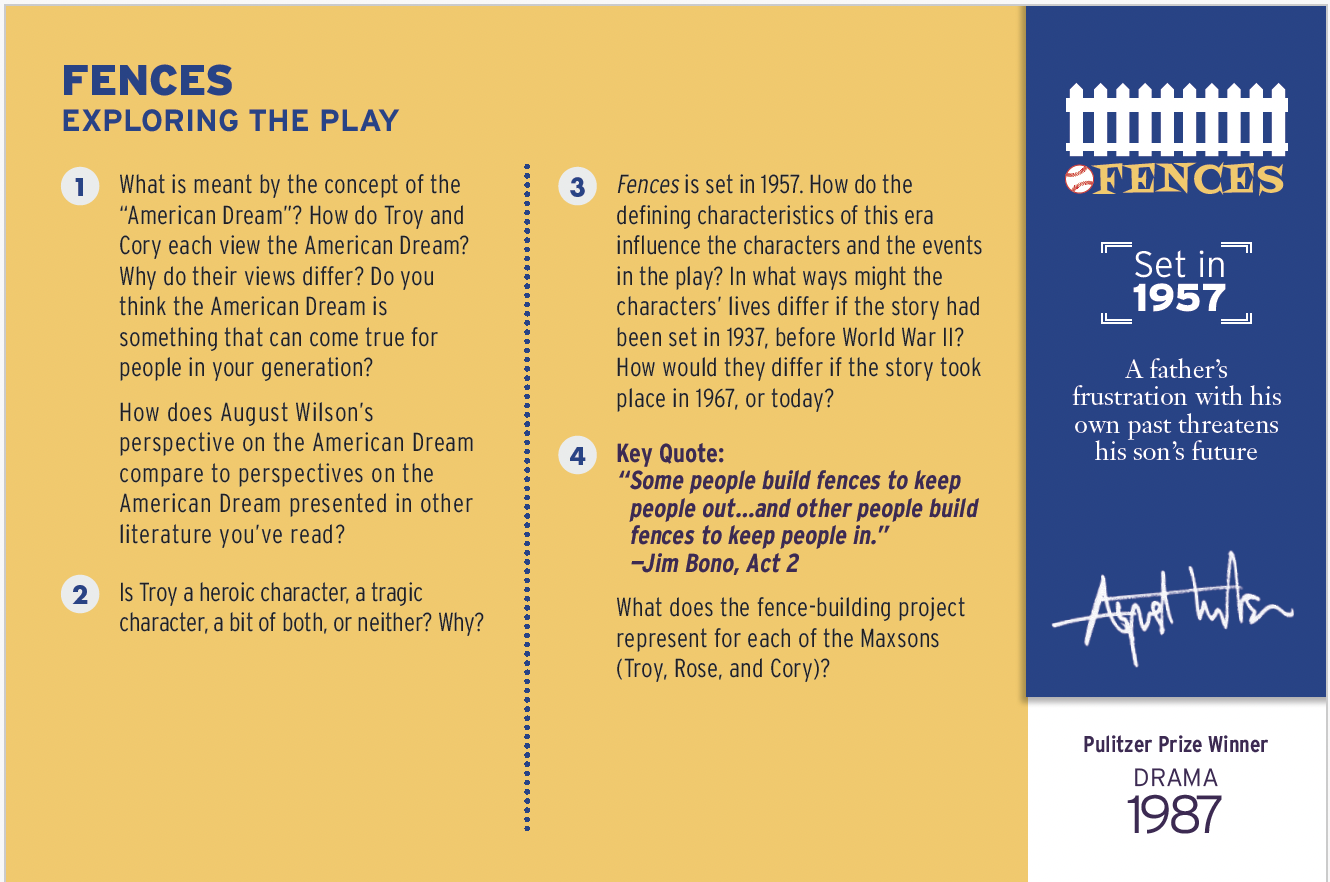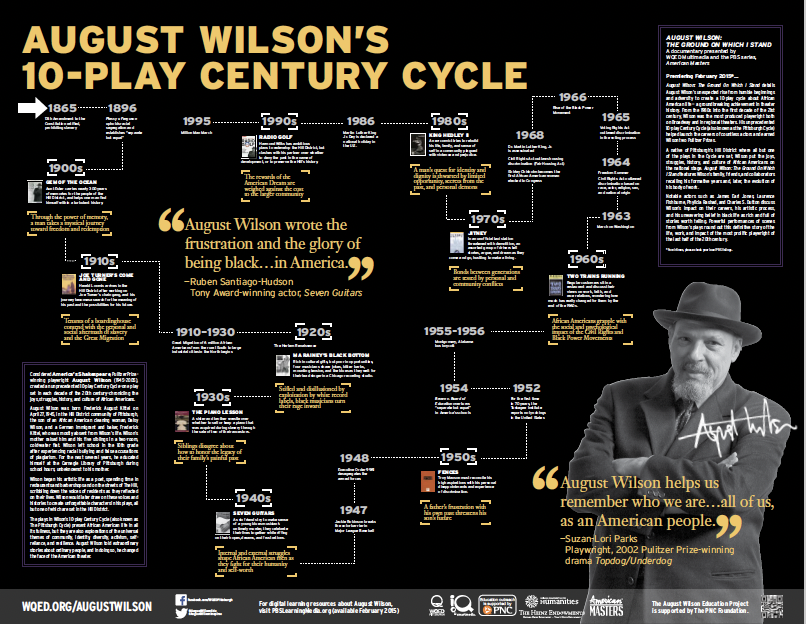
Teacher Guide
The 37-page interactive teaching guide, “Teaching August Wilson” featuring:
- Historical Connections to place the play in historical context
- Concepts for Pre-Teaching to give your students important background information prior to reading the text
- A brief Synopsis, Character List, and Quotations (excerpt or quote)
- Links to online content such as video and audio clips*
- In Your Words activities inviting students to share their voices.

Discussion Guide
This discussion guide is a companion document to the work of August Wilson, and the documentary which aired in February 2015.
You can view clips from the documentary on the PBS website.

10 Play Card Deck
This Card Deck encompasses Wilson’s 10 American Century Plays, featuring information about each play. It is a companion to the Teaching Guide. The deck of 10 cards contains extension activities for the classroom and beyond.

August Wilson 10-Play Century Cycle Poster
This 10-Play Century Cycle poster illustrates Wilson’s plays in the framework of African American life and is a great resource for the classroom. Also known as the Pittsburgh Cycle, it helped launch the careers of countless actors and earned Wilson two Pulitzer Prizes.
Additional Resources
Common Core Standards Information
Classroom Extension Activity:
Finding August Wilson’s Plays in Teenie Harris’ Photography
Teaching Challenging Language and Themes in Wilson’s Work
Teaching Racially Charged Literature: Can ‘N*gger’ Be the Mot Juste? by Danielle Buccilli
The Meanings of a Word by Gloria Naylor
In the News
Connecticut High School Performs “Joe Turner’s Come and Gone” Over Superintendent’s Objections
August Wilson’s “Fences” Banned at Illinois High School
Staging the Race Debate: Flipping the script on race and the Harvard dramatic community
